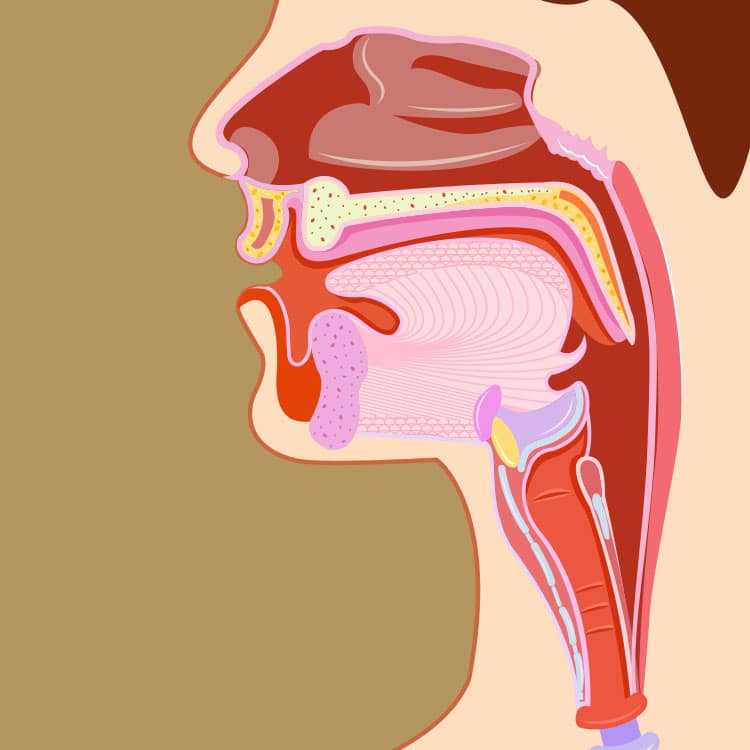Why do voices suddenly stop working? Don’t voices have good days and bad days? Can’t I just push through it when it gets bad?
Vocal burnout is a mystery to most people. Sometimes, you can talk or sing all day without any ill effects. Other days, it might take one shout or one song to burn you out completely, leaving you hardly able to speak. The tendency of most is to just think “Oh, I’m just having a bad day”. But looking at the voice’s last sputter misses the real story.
Vocal burnout comes on slow, over weeks and months. That final ‘kaput’ of the voice, although it feels so quick, will have been coming for a long time – you just didn’t have the know-how to notice it. So here goes, three ways that you can see that vocal burnout is coming, and what you can do to prevent catastrophe.

1: The Balance
The voice doesn’t have bad days, only bad habits. The most common habit that leads to vocal burnout is a sound which is ‘out of balance’. You’ve all heard the teacher yelling with a loud voice – but who can’t go at any other volume. You’ve all heard the singer with the quiet voice who strains like mad to get the top notes but goes flat.
Both of these voices suffer from the same problem: an imbalance between two important parts of the voice: the air pressure exerted from the abdomen, and the resistance of the vocal folds. Let’s break that down. The body can produce an extraordinary amount of air pressure: enough to produce around 200W worth of power. This comes from the diaphragm exerting pressure on the lungs to push the sound out, which you can read about here.
The vocal folds (or vocal cords) are designed to thin and thicken to be able to form this air pressure into a waveform to make a sound. To make louder sounds, the body does two things. It raises the air pressure coming through the body and thickens up the vocal folds to vibrate stronger and faster. So there is a constant balancing act between the two – the abdominal pressure and the vocal fold resistance. This tightrope act can take years of training to perfect.

2: Vocal Static
The problem comes when the whole system goes out of balance. Instead of a healthy, controlled vibration, the vocal folds go into an uncontrolled, distorted vibration, and start whacking into each other really hard. This dries out the vocal folds very quickly, leaving them exposed to rubbing and blistering. This can happen in both directions: both from if there’s too much pressure from the abdomen or not enough. The yelling teacher is pushing too hard, the straining singer not pushing hard enough.
This distortion is a slow burner, but it will get you in the end – eventually, the vocal folds get so dried out that they can no longer produce sound without hurting. If you then push through, you run the risk of permanent damage to the musculature and getting some nasty polyps or nodules, just like in the image above.
But how do you know if you’re out of balance? Listen to the sound. You might hear a gravelly sound in the yelling teacher, and a small croaky sound (called vocal fry) on the strained singer. I call this vocal ‘static’ – a small sound that accompanies the voice which tells you that you’re out of balance. Listen to the examples below.
3: Exercises
If you can hear ‘gravel’:
Relax your voice. You’ll need some regular periods of 15-minute vocal rest in order to maintain what you’re doing.
Look up information on vocal ‘twang’ – it will train you to use the natural resonance of your voice for volume instead of pushing. (A blog will be coming soon on this topic!) Try this exercise below to find more natural resonance instead of ‘yelling’ the sound.
Rock singers never fear – there are safe ways of achieving this sound. But learning how to sing safely should always be learned first. The fancy stuff always comes secondary.
If you can hear ‘vocal fry’:
Make sure to breathe deeply and fully when you speak or sing. Vocal fry can come from inadequate breath supply to the vocal folds, so use this – an article I wrote before on breathing – to get you clued up on how it works.
Keep a strong connection to your body when singing or speaking – use the ‘distance’ exercise below to re-engage with your body. The exercise above is also a great way to engage your natural resonance.
Listening to your voice for ‘static’ is the number one way that you can prevent vocal burnout. And don’t think you can push through it – stop your habits before your habits stop you. Use the exercises above to keep yourself on track.
How about you – are you a graveller or a fryer? Have you ever been burned out – and what did you do to get back on your feet? Let us know and join our conversation on the Vocalzone Facebook page. Alternatively, you can ask VoiceHacker a question on twitter by using his hashtag: #VoiceHacker
And spread the word – if you know a singer, school teacher, call centre worker, or public speaker who burns out hard, send them this link. Let’s stop vocal burnout forever. For more tips, visit our Vocal Care section of the blog.
